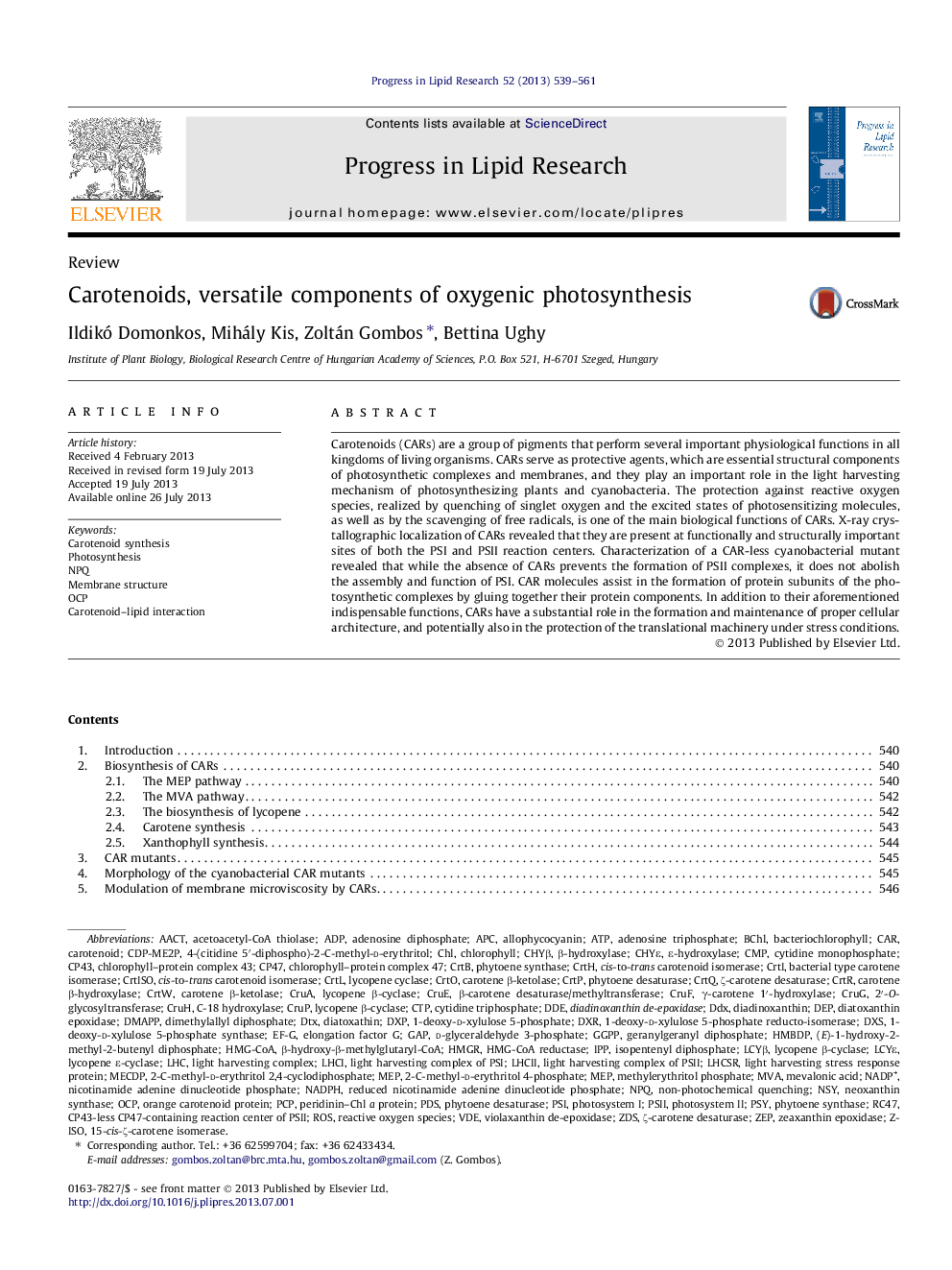| Article ID | Journal | Published Year | Pages | File Type |
|---|---|---|---|---|
| 10842907 | Progress in Lipid Research | 2013 | 23 Pages |
Abstract
Carotenoids (CARs) are a group of pigments that perform several important physiological functions in all kingdoms of living organisms. CARs serve as protective agents, which are essential structural components of photosynthetic complexes and membranes, and they play an important role in the light harvesting mechanism of photosynthesizing plants and cyanobacteria. The protection against reactive oxygen species, realized by quenching of singlet oxygen and the excited states of photosensitizing molecules, as well as by the scavenging of free radicals, is one of the main biological functions of CARs. X-ray crystallographic localization of CARs revealed that they are present at functionally and structurally important sites of both the PSI and PSII reaction centers. Characterization of a CAR-less cyanobacterial mutant revealed that while the absence of CARs prevents the formation of PSII complexes, it does not abolish the assembly and function of PSI. CAR molecules assist in the formation of protein subunits of the photosynthetic complexes by gluing together their protein components. In addition to their aforementioned indispensable functions, CARs have a substantial role in the formation and maintenance of proper cellular architecture, and potentially also in the protection of the translational machinery under stress conditions.
Keywords
BChlCMPDDEADPHMG-CoACTP1-deoxy-D-xylulose 5-phosphate synthase1-deoxy-D-xylulose 5-phosphateDTXDDXLHCIIGGPPLHCIcrtBd-Glyceraldehyde 3-phosphateEF-GCP431-deoxy-d-xylulose 5-phosphate reducto-isomeraseCRTICRTRLHCSRCP47APCacetoacetyl-CoA thiolaseζ-carotene desaturaseDXSAACTDXPDXRDEPDMAPPHMGRChlIPPHMG-CoA reductaseAdenosine TriphosphateATPadenosine diphosphateallophycocyaninCRTISOisopentenyl diphosphatebacteriochlorophyllLHCdimethylallyl diphosphateDiadinoxanthinChlorophyllphytoene synthaseCytidine triphosphateCytidine monophosphateGAPElongation factor GPhytoene desaturaselycopene β-cyclaselycopene ε-cyclaselycopene cyclaseCARLight harvesting complexCarotenoidgeranylgeranyl diphosphate
Related Topics
Life Sciences
Agricultural and Biological Sciences
Food Science
Authors
Ildikó Domonkos, Mihály Kis, Zoltán Gombos, Bettina Ughy,
